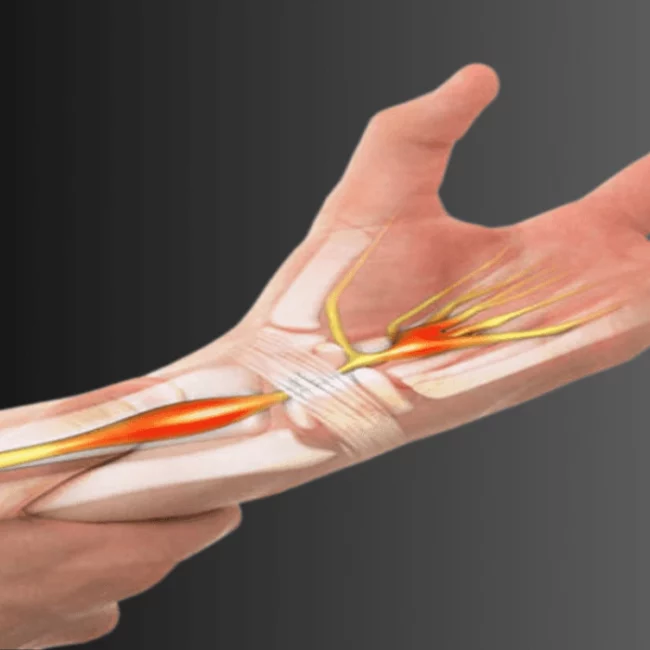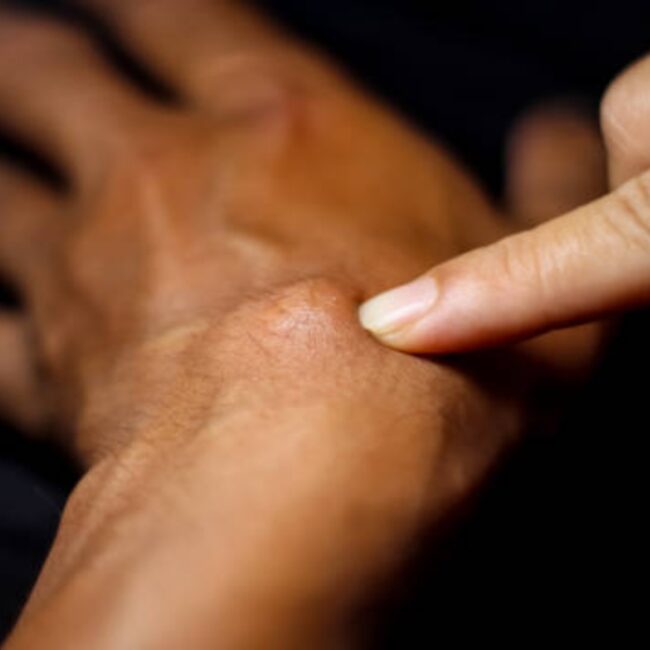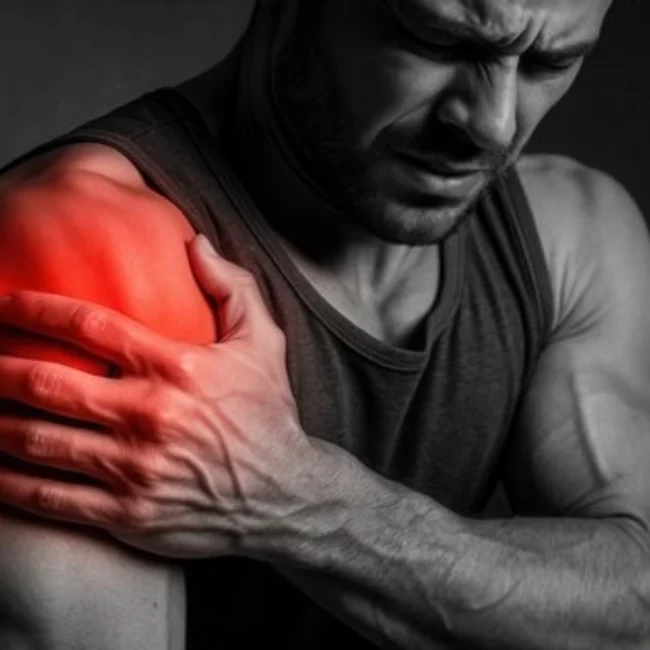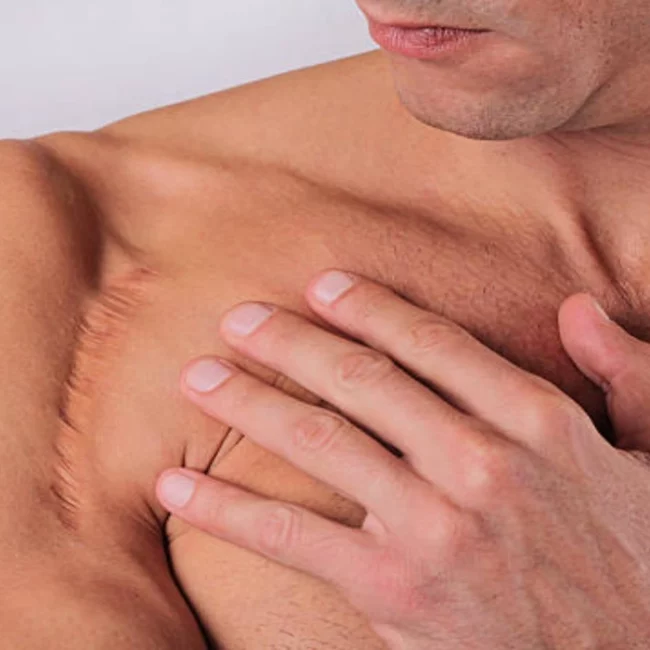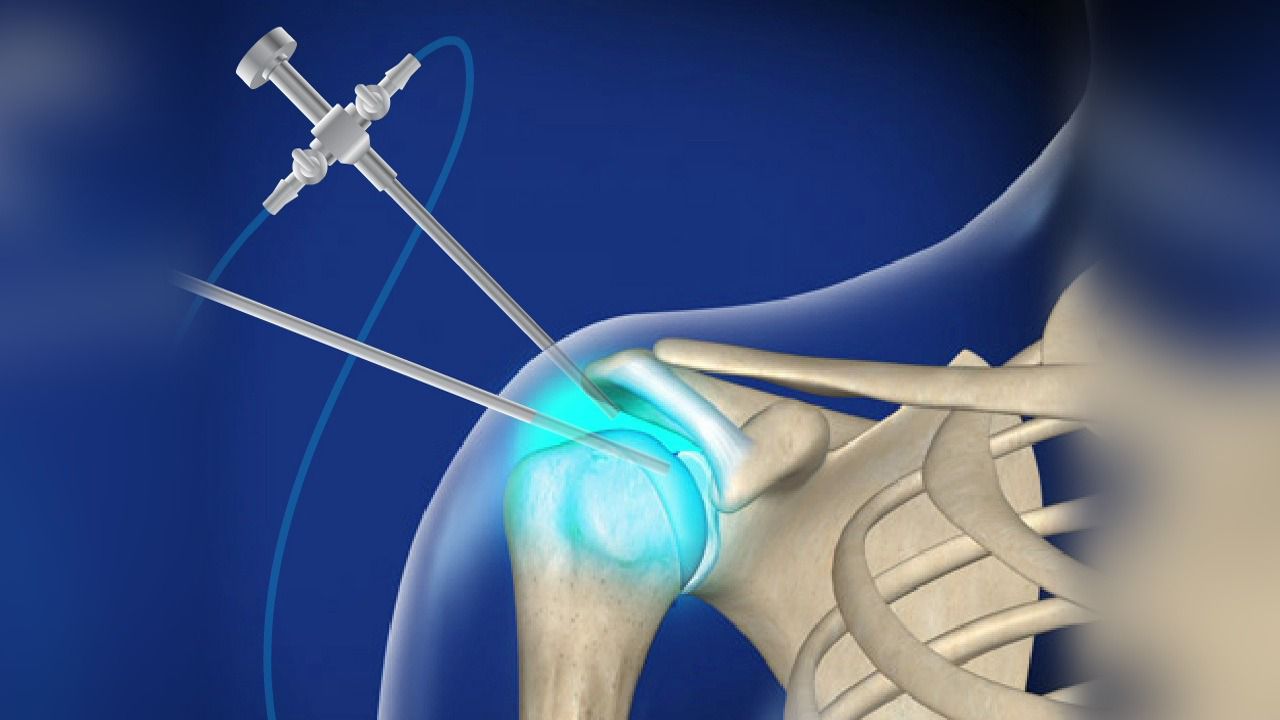
Recovering from Shoulder Arthroscopy: 5 Tips from Dr. Marouane
Shoulder arthroscopy is a minimally invasive surgical procedure used to diagnose and treat various shoulder conditions. It includes shoulder impingement, rotator cuff tears, and labral tears, with minimal disruption to the surrounding tissues. It offers a less invasive alternative to traditional open surgery, leading to faster recovery times and reduced scarring.
However, like any surgical procedure, a successful recovery from shoulder joint arthroscopy requires careful attention and adherence to post-operative guidelines. Dr Marouane, a renowned orthopedic surgeon with over 30 years of experience, shares five essential tips to help you recover effectively from shoulder arthroscopy.
1. Follow Your Surgeon’s Post-Operative Instructions
One of the most critical factors in a successful recovery from shoulder arthroscopy is strictly following your surgeon’s post-operative instructions. These guidelines are tailored to your shoulder pain treatment and personal health needs. Dr. Marouane emphasizes the importance of understanding and adhering to these instructions, which may include:
- Wearing a Sling: Depending on the specific procedure, such as shoulder impingement surgery, you may be required to wear a sling for several weeks. This immobilizes the shoulder, allowing the healing process to begin without additional strain.
- Pain Management: Post-surgical pain is common after shoulder joint arthroscopy, and managing it effectively is crucial for comfort and recovery. Dr Marouane prescribes pain medication and encourages the use of ice packs to reduce swelling and pain in the early stages of recovery.
- Wound Care: Keeping the surgical site clean and dry is essential to prevent infection. Follow the care instructions provided, including when and how to change dressings.
2. Gradual Physical Therapy is Key
Physical therapy is a cornerstone of recovery from shoulder arthroscopy. It is vital to regain strength, flexibility, and range of motion in the shoulder joint. However, Dr. Marouane advises patients to approach physical therapy gradually, following a structured program designed by a licensed physical therapist.
- Initial Phase: In the first few weeks post-surgery, particularly after procedures like shoulder impingement surgery, the focus is on gentle, passive movements to prevent stiffness and maintain flexibility. During this phase, your therapist may assist with exercises to move the shoulder without engaging your muscles actively.
- Strengthening Phase: As your shoulder heals, you will gradually transition to more active exercises aimed at strengthening the muscles around the shoulder joint. This phase is critical for restoring function and preventing future injuries.
- Advanced Exercises: Once the shoulder has regained a significant portion of its strength and range of motion, more complex exercises are introduced. These exercises may simulate everyday activities or sports movements to ensure that your shoulder can handle the demands of your lifestyle.
3. Prioritize Rest and Avoid Overexertion
Recovery from shoulder arthroscopy requires a balance between activity and rest. While physical therapy and movement are crucial, so too is giving your body the time it needs to heal. Overexertion leads to setbacks in recovery, potentially causing additional damage or prolonging the healing process.
- Resting Period: Marouane advises patients to listen to their bodies and prioritize rest, especially in the early stages of recovery. Fatigue, increased pain, or swelling are signs that you may be overdoing it and need to scale back your activity.
- Sleep Position: Sleep can be challenging after shoulder arthroscopy, particularly following shoulder impingement surgery. Finding a comfortable position that doesn’t strain your shoulder is essential. Many patients find relief by sleeping in a reclined position or using pillows to support the arm and shoulder.
4. Monitor for Signs of Complications
While shoulder arthroscopy is generally safe and has a lower risk of complications compared to open surgery, it’s important to remain vigilant for any signs that something may be wrong. Early detection and intervention prevent minor issues from becoming major problems.
- Infection: Symptoms of infection include redness, warmth, increased pain, or drainage from the incision site. If you experience any of these, contact your surgeon immediately.
- Shoulder Stiffness: Some patients may develop stiffness in the shoulder, known as a “frozen shoulder,” during recovery. Regular follow-up appointments with Dr. Marouane ensure that any stiffness is addressed promptly through targeted therapy.
5. Stay Committed to Your Follow-Up Appointments
Regular follow-up appointments with your surgeon are critical for monitoring your progress and making any necessary adjustments to your recovery plan. Dr. Marouane emphasizes the importance of these visits as they provide an opportunity to assess healing, address any concerns, and ensure that recovery is on track.
- Post-Surgery Checkups: Initial checkups typically occur within the first week or two after surgery. These visits focus on assessing wound healing, pain management, and overall recovery.
- Ongoing Monitoring: As you progress in your recovery, follow-up appointments become less frequent but remain crucial. These visits allow Dr. Marouane to evaluate your shoulder’s function, monitor for complications, and adjust your physical therapy regimen as needed.
Conclusion
Recovering from shoulder arthroscopy, whether it’s for shoulder impingement, rotator cuff tears, or other conditions, is a journey that requires patience, dedication, and careful adherence to your post-operative plan. By following these five tips from Dr Marouane—sticking to your surgeon’s instructions, engaging in gradual physical therapy, prioritizing rest, monitoring for complications, and attending follow-up appointments—one can optimize their recovery and return to daily activities with confidence.
Remember, every patient’s recovery is unique, and the guidance of an experienced orthopedic surgeon like Dr Marouane is invaluable in ensuring a successful outcome.
In case you have any questions or concerns during recovery, do not hesitate to reach out to Dr Marouane and his team for support.
FAQs about Recovering from Shoulder Arthroscopy
- How long does it take to recover from shoulder arthroscopy?
Recovery time varies depending on the individual and the specific procedure performed. Generally, patients can expect to return to normal activities recovery takes 3 to 6 months, with full strength and motion returning in about a year.
- What can I expect during the first few days after shoulder arthroscopy?
In the first few days after surgery, you may experience pain, swelling, and discomfort around the shoulder. Your arm will likely be in a sling to immobilize the shoulder. Pain management, rest, and gentle movements as prescribed by your surgeon will be crucial during this period.
- When can I start physical therapy after shoulder arthroscopy?
Physical therapy typically begins within the first week or two after surgery. The timing depends on the specific procedure and your surgeon’s recommendations. Early therapy focuses on gentle, passive movements to maintain flexibility and prevent stiffness.
- Is shoulder arthroscopy a painful procedure?
It’s generally less painful than open surgery, but post-op pain can be managed with medications, ice packs, and other pain relief methods recommended by your surgeon.
- How can I prevent complications after shoulder arthroscopy?
Follow your surgeon’s instructions: proper wound care, attending all follow-up appointments, avoiding overexertion, and monitoring for signs of infection or other issues.
- Can I return to sports or physical activities after shoulder arthroscopy?
Depending on the extent of your surgery and recovery progress, you may be able to resume light activities within a few months, with a gradual return to more strenuous activities as your shoulder heals.
Ready to begin your recovery journey with expert guidance?
Schedule your appointment with Dr Marouane Bouloudhnine and take the next step towards regaining full shoulder function.
Contact us now to ensure a smooth and successful recovery.
Also read, The Ultimate Guide to Finding the Best Elbow Specialist for Your Needs



